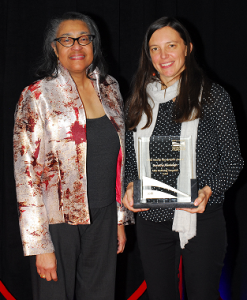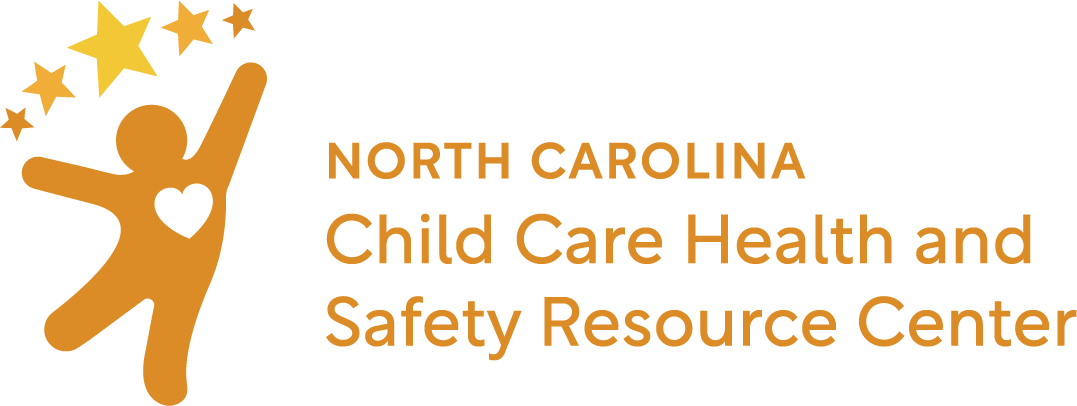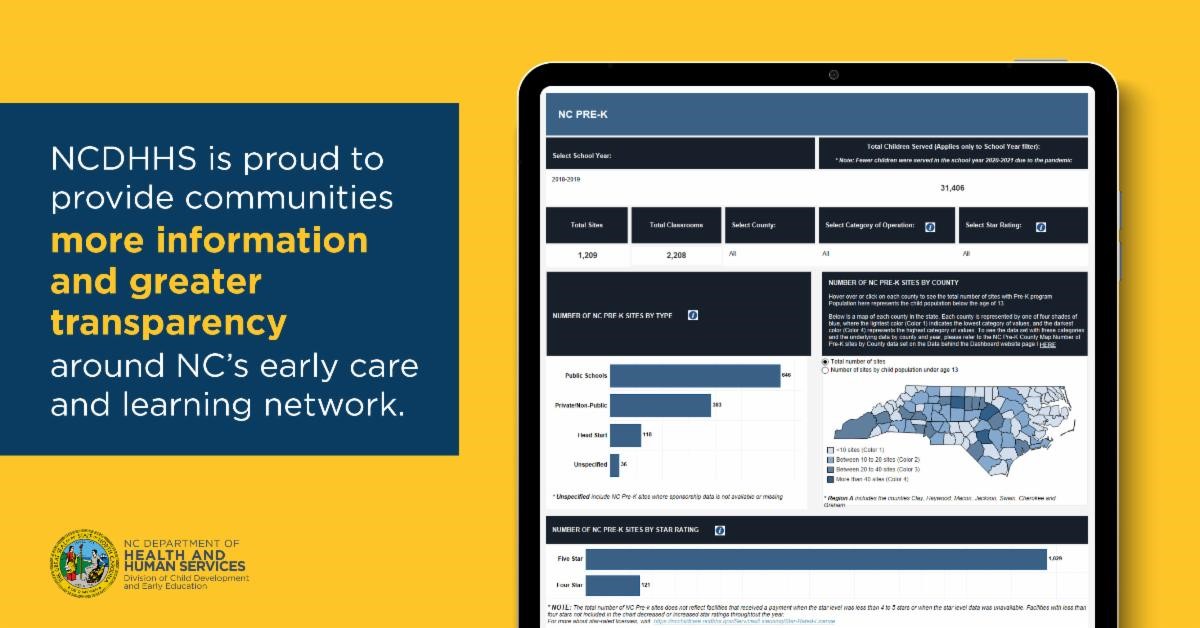
Congratulations to Chatham Child Care Health Consultant, Dorothy Rawleigh! She received the Public Health Staff Recognition Award through the NC GlaxoSmithKline Foundation’s 2018 Child Health Recognition Awards program. The award was presented at the NC Public Health Association conference in December 2018. This award recognizes her work on developing partnerships resulting in healthier food, higher immunization rates, and better emergency preparedness planning in child care facilities.
Additionally, the Chatham County Public Health Department Immunization Program was recognized with a NC GlaxoSmithKline Foundation Child Health Recognition Award. Chatham County regularly ranks number one in the state in immunization rates among children ages 0 to 36 months. The Chatham County Health Department achieved this by blending policy changes, training, tracking, feedback gathering, and follow-up with child care facilities.




